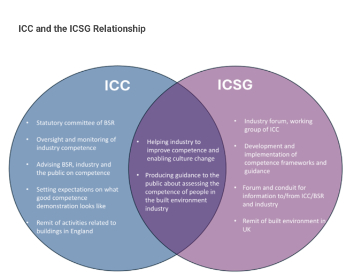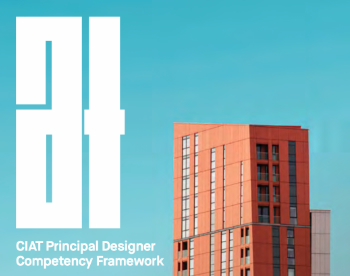Sector survey shows optimism tempered by staff shortages
The latest engineering services sector survey shows that the majority of business owners and decision-makers expect their business performance to improve in the short term towards year-end and beyond. The finding comes despite concerns about economic and recruitment challenges ahead.
Contents |
[edit] Quarterly survey optimism
The latest findings of the quarterly Building Engineering Business Survey, backed by trade bodies ECA, BESA, SELECT and SNIPEF, revealed that three quarters (75 percent) of engineering services businesses expect to perform better in Q4 2022 than one year ago, in Q4 2021.
Three quarters (74 percent) of respondents also expect their turnover to stay the same or increase by the end of Q4 this year. Almost 4 out of 5 businesses (78 percent) saw their turnover stay the same or increase between April and September (Q2 and Q3) this year, and most seem to expect the trend to continue in the short term.
However, the survey revealed widespread recognition of the challenges ahead, as just over half (51 percent) listed staff shortages as their number one or number two worry for their business. More than half (52 percent) highlighted shortages in electrical skills as a particular concern.
Closely following was overriding concerns about price inflation of materials as there continues to be a global shortage of semi-conductors.
[edit] Comments
ECA Director of Legal and Business Rob Driscoll said:
“Today’s engineering services landscape is more complex than ever. The major increase in energy prices has significantly increased demand for certain services, but residual concerns remain over material costs for all products requiring electronics.
“Continued labour shortages and growing worries about delivering fixed priced contracts continue to keep business owners up at night. This could indicate a near future where order books appear healthy, but work is delivered at negative margins. Contractors should be cautious in their optimism, as the effects of economic decline in 2023 will take some time to filter through to the engineering services sector and could be felt later on.
“Wise businesses have been using the CLC Product Availability Statements to collaborate and tackle inflation in order to build on long-term sustainable delivery for clients.”
BESA Director of Legal and Commercial Debbie Petford said:
"Our latest survey demonstrates that contractors are facing an unprecedented variety of challenges, but also that they are doing an admirable job of coping with them and turning several into growth opportunities.
"We are all having to tussle with the cost-of-living crisis, but our industry has a big role to play in long-term solutions, particularly in improving energy efficiency and lifecycle performance of buildings. This is clearly reflected in the findings of the survey which point towards significant growth prospects for building engineering firms in the medium to long term.”
[edit] Retentions issue
The sector continues to deal with challenging payment practices. Seven in 10 survey respondents (70 percent) currently have up to 2.5 percent of their turnover in retentions. Meanwhile, almost 4 out of 5 (78 percent) say commercial client or main contractor work is still being paid for more than 30 days after the job, with some (4 percent) experiencing delays of up to 90 days or more.
The Construction Leadership Council (CLC) in collaboration with NEC recently published guidance to industry on the use of retention clauses under NEC3 and NEC4 Engineering and Construct Contracts (ECC), and sub-contracts.
Steve Bratt, ECA CEO and Chair of the CLC’s Business Models Workstream said:
“The long-term aim is to eliminate the need for retentions altogether. This guidance illustrates that often the need for retentions can be avoided through good contract management and selection of contractors with a good track record of quality work.”
Despite strong confidence in demand, the grand majority (94 percent) of survey respondents said they expect payment behaviour to stay the same or worsen by the end of the year.
This article was issued as a press release as "Sector optimism tempered by staff shortages" by ECA on November 30, 2022.
--ECA
[edit] Related articles on Designing Buildings
Featured articles and news
Twas the site before Christmas...
A rhyme for the industry and a thankyou to our supporters.
Plumbing and heating systems in schools
New apprentice pay rates coming into effect in the new year
Addressing the impact of recent national minimum wage changes.
EBSSA support for the new industry competence structure
The Engineering and Building Services Skills Authority, in working group 2.
Notes from BSRIA Sustainable Futures briefing
From carbon down to the all important customer: Redefining Retrofit for Net Zero Living.
Principal Designer: A New Opportunity for Architects
ACA launches a Principal Designer Register for architects.
A new government plan for housing and nature recovery
Exploring a new housing and infrastructure nature recovery framework.
Leveraging technology to enhance prospects for students
A case study on the significance of the Autodesk Revit certification.
Fundamental Review of Building Regulations Guidance
Announced during commons debate on the Grenfell Inquiry Phase 2 report.
CIAT responds to the updated National Planning Policy Framework
With key changes in the revised NPPF outlined.
Councils and communities highlighted for delivery of common-sense housing in planning overhaul
As government follows up with mandatory housing targets.
CIOB photographic competition final images revealed
Art of Building produces stunning images for another year.
HSE prosecutes company for putting workers at risk
Roofing company fined and its director sentenced.
Strategic restructure to transform industry competence
EBSSA becomes part of a new industry competence structure.
Major overhaul of planning committees proposed by government
Planning decisions set to be fast-tracked to tackle the housing crisis.
Industry Competence Steering Group restructure
ICSG transitions to the Industry Competence Committee (ICC) under the Building Safety Regulator (BSR).
Principal Contractor Competency Certification Scheme
CIOB PCCCS competence framework for Principal Contractors.
The CIAT Principal Designer register
Issues explained via a series of FAQs.


























Comments
[edit] To make a comment about this article, click 'Add a comment' above. Separate your comments from any existing comments by inserting a horizontal line.